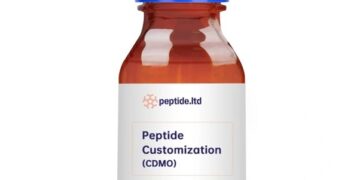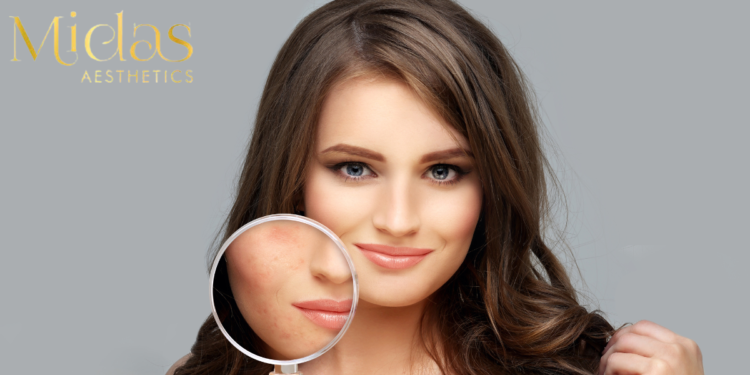Skin hydration and moisturization are two completely different needs. The primary difference lies in how each ingredient affects the skin – hydration attracts water molecules to the outer layer, while moisturization locks that moisture in to stop it from evaporating.
Often products will contain a combination of both – to prevent the user from needing to decide if it’s a moisturizer or a hydrator. But, no matter the product, neither hydration nor moisturization is a necessity. It simply depends on the individual and their skin type.
When it comes to finding the right skincare products, the American Academy of Dermatology Association (AADA) recommends finding the ones tailored to your specific skin type – dry, oily, etc.
It’s important to understand the difference between hydration and moisture, the type of ingredients you need for your skin, and how to combine the products that you choose for maximum results.
Making the right choice for your skin type and lifestyle will help you create the perfect daily skin care regimen to achieve and maintain healthy, beautiful skin.
Hydration and Moisturisation
Hydration and moisture may sound like interchangeable words, but in skincare, there’s a huge difference between them. Hydration is mainly about water, while moisture has to do with oil-based products. This is why we have a range of products from lotions and creams to mists and serums that each serve a different purpose – they all help provide hydration and moisture to keep your skin looking and feeling healthy.
Humectants are the best of both worlds, as they are designed to help attract and retain moisture in the skin while also providing an adequate amount of hydration.
What is Hydration?
Hydration is an essential component of healthy and radiant skin. Hyaluronic acid, panthenol, alpha hydroxy acids, and other humectants can help improve the skin’s hydration by locking in moisture and keeping it well hydrated.
Honey, gelatin, urea, sorbitol, and glycerin are some of the natural humectants which work great for the skin. Not only do these humectants pull water from the environment and deeper layers of the skin, but they also help keep the skin looking radiant and healthy by promoting healthy cell renewal.
So, incorporate these hydrating ingredients into your skincare routine to reap the best hydration results!
What is Moisturisation?
When it comes to keeping our skin looking hydrated and nourished, there are a few types of moisturizers to choose from. Humectants are the perfect hydrating choice to add moisture.
There are also occlusives, emollients, and protein rejuvenators that each offer something different to the skin. Occlusives such as petrolatum, beeswax, mineral oil, and lanolin create a layer over the skin to lock in moisture. Emollients like fatty acids and fatty alcohols not only strengthen the skin’s barrier function but also help to improve skin texture and appearance.
Last, but certainly not least, are protein rejuvenators like collagen, keratin, and elastin, which help to replenish essential proteins that help the skin stay looking youthful and revitalized.
When it comes to identifying hydration from moisturizers, there is a little bit of ambiguity. Studies conducted in 2017 suggest that there is no unanimous consensus regarding a clear-cut definition for moisturizers, hence it has resulted in the words ’emollient’ and ‘moisturizer’ being used interchangeably.
What is your skin’s need:
Hydration or Moisturisation?
If your skin is feeling dry, your best option is to look for a moisturizer that contains hydrating ingredients, like hyaluronic acid, aloe vera, or glycerin. These substances can attract water to the surface of your skin, trapping it and providing the hydration your skin needs.
If your skin feels tight and irritated, a moisturizer with occlusive substances, like petrolatum or silicones, maybe a better choice. These products create a protective barrier that prevents moisture from escaping your skin and can also act as an anti-inflammatory.
Lastly, moisturizing emollients, such as coconut oil, jojoba oil, and shea butter, can also help replenish skin and add nourishment to dry or depleted areas.
Skin’s Hydration Need:
The study findings showed that people who drink more water daily are likely to experience higher levels of hydration in the epidermis, which is the outermost layer of the skin. However, it did not conclusively identify the optimal water intake required for ideal skin hydration.
Nevertheless, it concluded that drinking more water did have a positive impact on skin physiology.
Subsequently:
The guidelines on water consumption have changed since the year 2010, with males needing to consume 3,000 milliliters (101 ounces) of water and females needing 2,200 ml (74 oz). Converting that to cups, males should aim to drink 12 cups and females 9 cups of water every day to stay healthy and hydrated.
The guideline for Right Skin Care Products
Finding the right skin care product for your needs can be tricky. Not everyone knows if their skin requires extra hydration or if their skin type even requires any specific ingredients. Thankfully, the American Academy of Dermatology (AADA) provides useful tips and advice to help you decide what to choose for your individual skin needs.
First and foremost, AADA advises that you should choose your skin care product based on your skin type. This means, looking for products with formulations made specifically for either oily, normal, dry, combination, or sensitive skin.
If you are searching for a product suitable for aging skin, then it’s wise to look for products labeled hypoallergenic and non-comedogenic or non-acnegenic. This ensures that it will not trigger an allergic reaction or cause you to break out with acne.
Conclusion
When faced with deciding on the right product to provide either hydration or moisture, certain ingredients can help you make the right choice. To provide hydration, there is hyaluronic acid and glycerin. For those looking to provide moisture, lanolin, and mineral oil may be beneficial. Memorizing these different ingredients can be challenging, so if you find it easier, you can look for products that are tailored to the skin type, such as oily or dry.
With that, you can be sure that you are selecting the best ingredients for your needs!





























